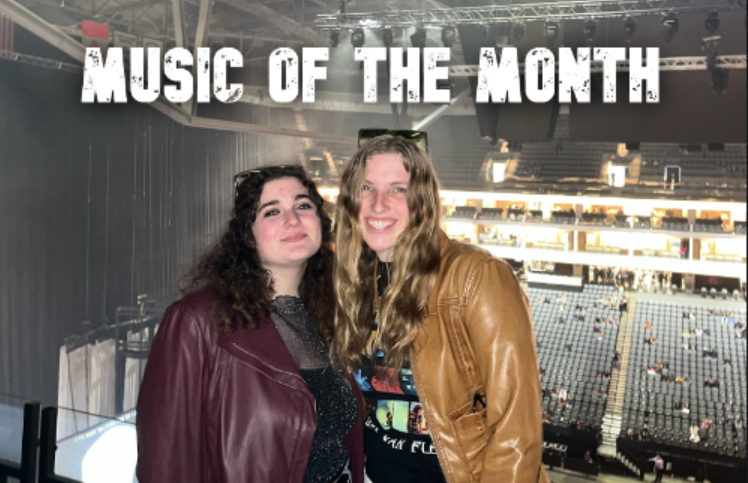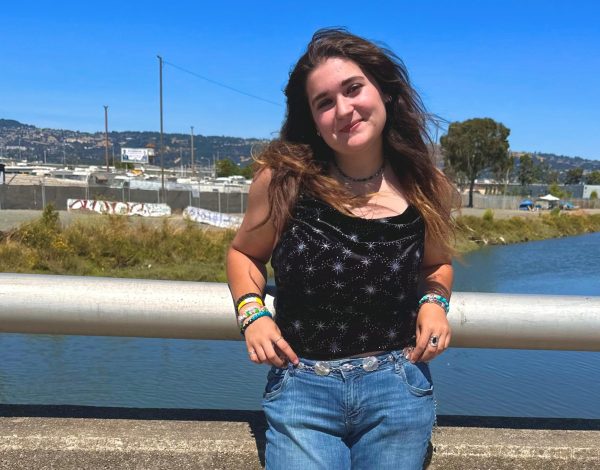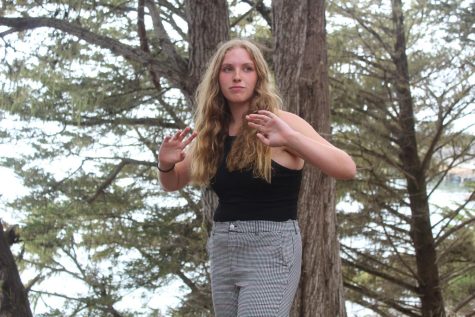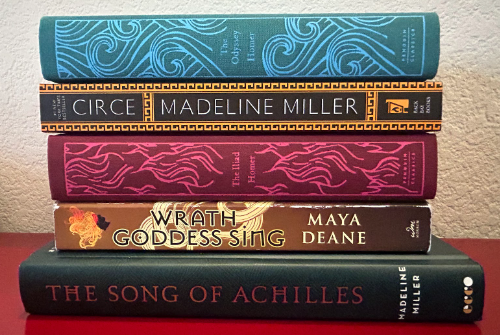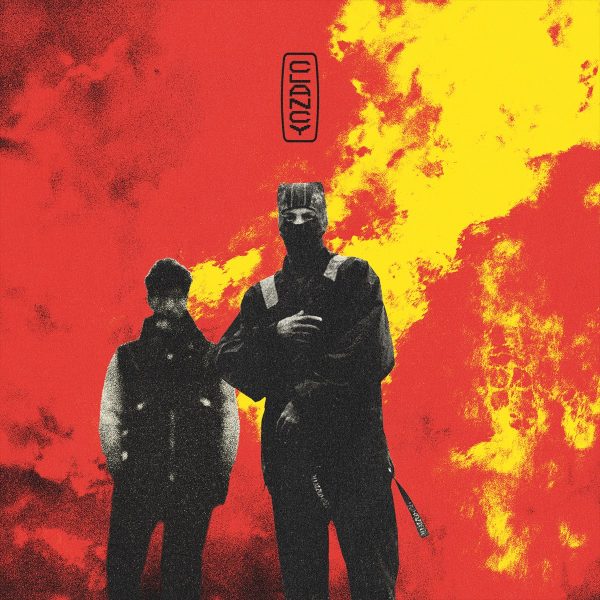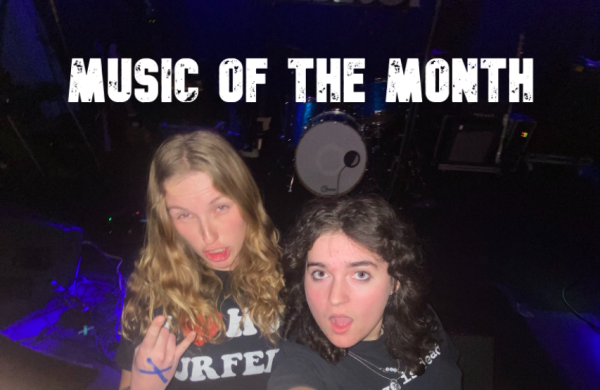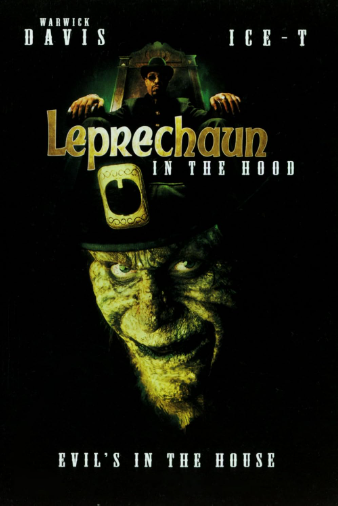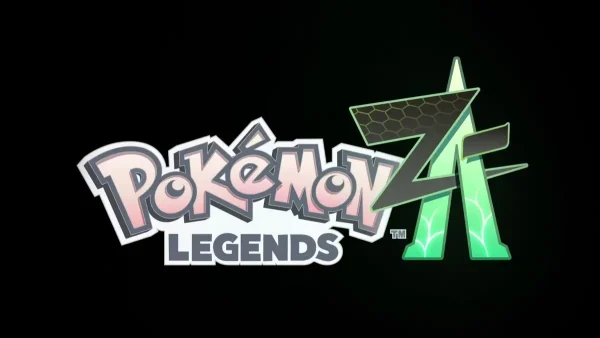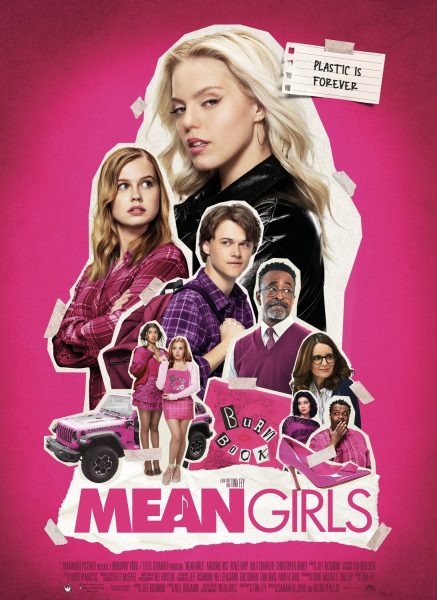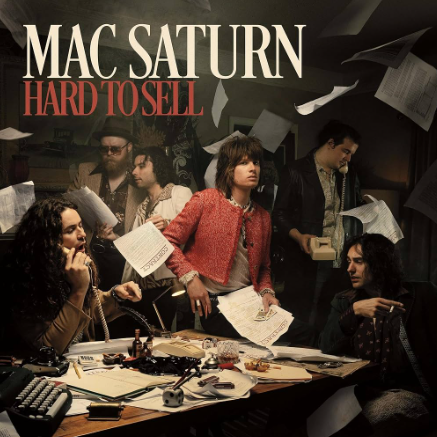Music of the Month: March
Cali and Brianna compile a list of their top songs each month and go in depth with them.
April 18, 2023
Happy March!! Musically, this has been a great month for us, as we saw Greta Van Fleet in concert and are making plans for several other shows.
“
Want to see what else we’re listening to? Check out our Spotify accounts! Cali: Footos | The Fresh Fighter Brianna: Benusom
Want to see what else we’re listening to? Check out our Spotify accounts! Cali: Footos | The Fresh Fighter Brianna: Benusom
Cali’s picks:
“Leather Jacket” by Joyce Manor, “Joyce Manor” (2011)
Hailing from the beach community of Torrance, California, Joyce Manor first formed as an acoustic duo with roots in alternative rock and punk. However, as they gained members and experience, the outfit became a more traditional pop-punk four-piece that headed to the studio to record their debut album, “Joyce Manor” (sometimes referred to as “S/T”), in 2011. As the sixth song on this seminal introductory album, “Leather Jacket” is a raw and scrappy ditty that tells the story of a close friend or significant other who has completely changed themselves, and now hides under the seemingly cool facade of the aforementioned “leather jacket.” The number kicks off with a shriek of feedback, a few quaint power chords, Matt Ebert’s melodic bassline, and a squeal of natural guitar harmonics that sends the number into the first verse. The verses are riddled with Barry Johnson’s rough vocals, rhythmic drum beats, and palm-muted guitar riffs that perfectly accompany the prominent bassline. The chorus features the dual harmonized vocals of Ebert and Johnson that blend seamlessly with the hard-hitting undertones of the minor-sounding guitar. The chorus transitions into the second verse that repeats the same structure as the initial verse and fades into the instrumental outro that consists of soloing guitars and the eventual percussive buildup that ends the track. Clocking in at just over two minutes, “Leather Jacket” is a riveting composition that stands out on Joyce Manor’s debut album while still maintaining the same energy as the rest of the album.
“333” by Hellyeah, “Welcome Home” (2019)
Following the death of legendary Pantera and Damageplan guitarist Dimebag Darrell in 2004, Mudvayne singer Chad Gray and Nothingface guitarist Tom Maxwell sought out to form a band with epic drummer Vinnie Paul, brother of Darrell, who played alongside him in Pantera and Damageplan. In 2006, this dream finally became a reality as Paul agreed to join them to form Hellyeah, which would become one of the most successful metal supergroups of all time. Before his 2018 passing, Paul began working on a song that would eventually become “333”, however Gray hadn’t written lyrics until after Paul’s untimely death. A year after Paul’s death, Hellyeah got back into the studio and recorded their sixth studio album “Welcome Home,” where “333” kicks off the album in a striking fashion. Described as “Vinnie Paul’s baby,” the raging number begins with three hi-hat hits and Gray’s tortured scream that is accompanied by Maxwell’s rollicking guitar. Following this raucous intro, the band enters the first stretched-out chorus before diving into the chaotic verse section. The verses feature Maxwell’s extreme riffage along with Gray’s rap-like vocal bursts that heighten the overall heaviness of the number. The choruses greatly contrast the verses as they contain power chords that ring throughout that coincide with Gray’s smoother vocals. After the third chorus, the band breaks into a captivating bridge that directly transitions into Maxwell’s driving guitar solo and final chorus. The outro begins with the repetition of the bridge section that abruptly cuts off, marking the end of the tumultuous opening track. Unrelated to Paul’s death, the lyrics themselves are a recognition of how many metal fans feel isolated due to people’s petty judgments of them and how it unites the metal community as one “family.” Although Paul’s musical idea of “333” wasn’t properly carried out until after his passing, his legacy and spirit lives throughout the turbulent and catchy composition.
“DVP” by PUP, “The Dream Is Over” (2016)
Fading in directly from the opening track “If This Tour Doesn’t Kill You, I Will,” “DVP” is an explosive composition that exudes pure angst and pent-up emotion through raw vocals, pounding drums, and distorted guitars. The Canadian punk outfit begins this hard-hitting number with Steve Sladkowski’s muffled, tremolo-picked guitar solo that continues to build up along with Zack Mykula’s drums until transitioning into the verse. Telling the story of how drinking can derail a relationship, the title throws subtle homage to the band’s hometown of Toronto as the acronym “DVP” refers to the Don Valley Parkway, a major throughway in the Canadian city that is infamous for being busy and oftentimes hectic. The verses feature Stefan Babcock’s blatant and rough vocals that are accompanied by the band’s hard-hitting backup harmonies on certain lines, adding an extra punch of emphasis on the already fierce number. Contrasting the fiery verses, the choruses are riddled with cleaner guitars, subtle undertones of feedback, and driving group chants that perfectly coincide with Babcock’s bellicose, yet rhythmic yells. Bridging together the first chorus and second verse is an eclectic instrumental break that is broken up by a deafening harmonic guitar squeal that brings the band back to the uptempo verse structure. After the second chorus is an anthemic bridge that includes Sladkowski’s prominent power chords and group vocal callouts that are followed by Babcock’s standalone wails that transition into the final, stripped-away chorus that is nearly acapella. The aggressive tune comes to a close after the line “She says I need to grow up,” and a final blow of a guitar chord that resonates before fading into silence. Serving as the second track on PUP’s sophomore album, “The Dream Is Over,” “DVP” has quickly become a fan-favorite, and one of the band’s most popular songs.
Brianna’s picks:
“Alone Again (Naturally)” by Gilbert O’Sullivan, “Himself” (1971)
Irishman Gilbert O’Sullivan rolls this track into a grooving piano melody supported by its rhythmic drumming. This soft rock track delves into themes of suicide, abandonment, uncertainty in religion, and death of loved ones with phenomenally written retrospective lyrics. Upon his vocal entrance, O’Sullivan eases the listener into one of the first topics of the narrator’s experiences of being alone. In the first verse, O’Sullivan paints a clear picture of the narrator contemplating ending his life due to being forsaken at the hands of others. However, the narrator doesn’t blame any of them, and is able to find something in common, evident in the second stanza after the narrator is left at the altar and comes up again for the bridge’s entirety. “Alone Again (Naturally)” includes underlying and surfacing psychological trauma caused by the self-esteem-shattering events that the narrator has faced ― mainly him being approached by the staggering pain of abandonment. Simple and effective, the chorus (which is more of a single refrain) cites the title of the track. Simultaneous with the start of the third verse, an orchestra enters with warm stringed instruments, providing a sense of security in the hopeless time. In this section, O’Sullivan dives into his apprehension about the existence of God. Following the third topic in the narration, O’Sullivan introduces the bridge of the track that hones in on the narrator’s recognition of being alone. However, O’Sullivan incorporates a concealed message that there is light at the end of the tunnel. The narrator is not the only person feeling this way but nothing resolves this emotional state because of the uncertainty of how to move forward. The bridge then transitions into a lengthy classical guitar solo which follows the main melody of the verses. Backed by a prominent violin that contrasts the full orchestra heard under the track initially, the strings bleed back into the full group and warmer tone towards the end of the solo. The live version performed by O’Sullivan and the company offers additional instruments such as flutes, and more echoed vocals. This version is just as good, if not better than the studio recording when you take into consideration the tone of O’Sullivan’s voice, the talents of the band, and the audio quality for the time. “Alone Again (Naturally)” is truly one of the most depressing songs ever written, and evokes an uneasy yet empathetic feeling with the darker tones yet creates an audibly satisfying contrast through instrumentation, structure, and lyricism.
“Age of Machine” by Greta Van Fleet, “The Battle at Garden’s Gate” (2021)
Jake Kiszka opens this seven-minute-long masterpiece with his rising, resonant Gibson Les Paul: a model notably used by some of the greats in rock history. As he plucks the strings with ease, his vocalist counterpart, Josh Kiszka (Jake’s twin brother), makes his vocal appearance on the track with his impressively high falsettos following Jake’s third repeating guitar phrase. Josh uses his vocals in this section and throughout the track as an additional instrument and layer to build upon the already gorgeous composition. “Age of Machine” exercises a distinct type of song structure that differs from the rest of Greta Van Fleet’s (GVF) discography. Using two verses at the beginning of the track, the two choruses are left to the latter half, to which some argue that the choruses should be classified as bridges based on their placement. Additionally, the two choruses are broken up by a decently long guitar solo, sufficient enough to leave a lasting impression. No matter the divide based on technical aspects and general opinions in music, “The Battle at Garden’s Gate” marks a great turn of the band coming into their own and establishing their unique sound ― but also with the help of going back to their roots. With reference to the title “Age of Machine,” it is tangible to draw connections to the opening track “Age of Man” on their previous and debut album “Anthem of the Peaceful Army” (2018), conceivably showing the evolution and growth from “man” to “machine.” The fifth track on GVF’s second studio record surpasses the comprehension of surface-level (if that) messages of pop music today. Nevertheless, it’s even more satisfying to have a music video that matches the same perception of depth reached within a track. Directed by Matthew Daniel Siskin, the “Age of Machine” music video embraces cryptic symbolism to convey more serious messages of the song such as the growing reliance on technology (hence the title), the effects of machinery deteriorating, and vintage elements juxtaposed with the modern age of technology in the camera work to show growth and evolution. Obtaining 4.6 million views on YouTube, the music video pushes today’s rock genre in a more controlled and mature space with the video having a clear agenda: everything included in the video is done in a purposeful manner to invoke certain reactions and responses out of the viewers. The cinematography and scenes make the video seem as if it is a short film rather than just a music video for a rock song. Showing how much they care about every single afterthought, GVF creates an experience of being fully consumed by the power of music. Greta Van Fleet performs “Age of Machine” just as well live and on stage as in the studio setting: more advanced and complex vocal runs from Josh, younger brother Sam Kiszka on the keys, and the drumming excellence of their long-time friend Daniel Wagner. The overall tone of the music video creates a hard-hitting and soaring feeling, most evident in the choruses of the track itself and the scenes in the video to match its energy. The track overall seeks to full unlimited interpretations in lieu of hyper-fixating on just one sole meaning. With that, all small inferences apply and contribute to the bigger picture for this gem of a track.
“Paperwaster” by Wonderbad, “Paperwaster” (2022)
Following the release of their debut self-titled album, Wonderbad released “Paperwaster,” a catchy, rocking number with a repetitive chorus, interesting instrumentation concepts, and strong vocals. Wonderbad has everything that is needed for a successful rock band. Drawing elements from the ‘90s grunge movement, Wonderbad’s first single of 2022, “Paperwaster,” utilizes compositional effects seen in the music of Silverchair, Alice In Chains, Nirvana, Filter, and Foo Fighters ― to name a few. The underground band opens the track with a spongy, menacing bass, bleeding into the full instrumental ensemble with pungent drums and a squealing guitar tone, leading into the angsty vocals of Milo Stanfield (who also serves as the band’s guitarist). Post-refrain of the cryptic, repeating line “I spent three hours writing something on a piece of paper,” Wonderbad offers dissonant backing vocals to counteract the former’s increasingly harsh vocal quality and the narrative written on top of the vocalise. The breakdown and solo of the track reintroduce the doom-like bass heard in the intro of the track, and branches into a high contrasting guitar tone that is almost futuristic. At the brink of concluding the track, Stanfield alters the last part of the refrain from “I spent three hours writing something on a piece of paper” to “I spent three hours writing something, separation.” Just when you think the song comes to its ultimate end after the intense screaming, the track fades into a rapid crescendoing, rhythmic drumming that is accompanied by the far more aggressive, layered yelling, and riffs evident from the refrain. As a track that can seemingly be found in the ‘90s Seattle scene, the sustained intensity within “Paperwaster” ― even at the low parts of the song ― is only the tip of the iceberg with the band’s talents and capabilities.


